
Kathimerini Greece Newsroom
Firefighters have been battling several blazes in southern Europe for the past few days as the mercury soared, with scientists linking the very high temperatures to climate change.
In Spain, the mercury exceeded 40 degrees Celsius, making the work of firefighters difficult. Shocked residents, seeing thick smoke billowing over the Herte Valley in the west of the country said the heat was now reminiscent of southern Spain. "Climate change affects everyone," said resident Miguel Angel Tamayo.
More than 1,000 deaths have been attributed to the nearly week-long heatwave in Portugal and Spain so far. Temperatures in Spain reached 45.7 degrees Celsius.
A study published in June in the journal "Environmental Research: Climate", according to the Reuters agency, concluded that it is very likely that climate change is intensifying heat waves.
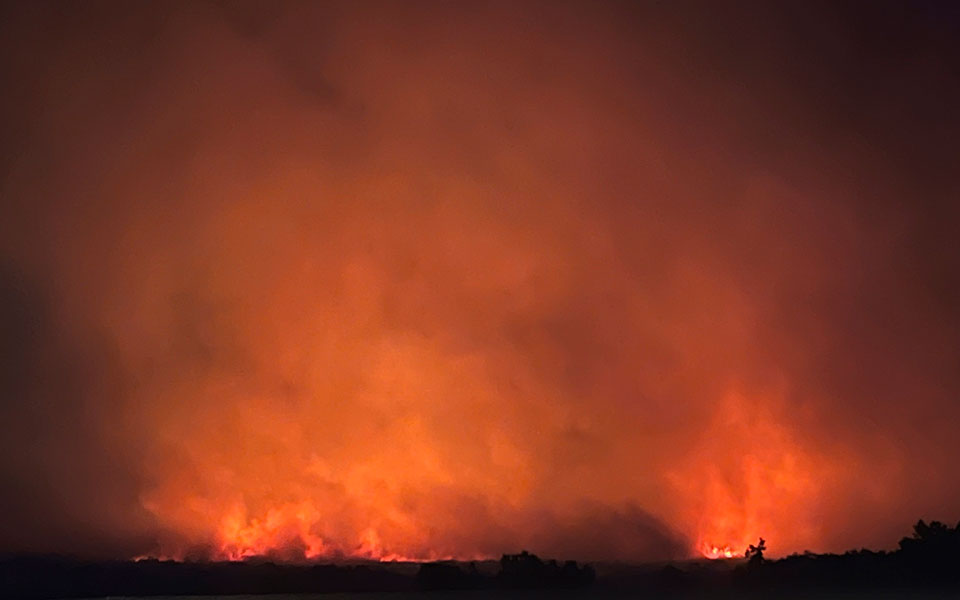 Monsagro, Spain. UME/J. de Oro via AP
Monsagro, Spain. UME/J. de Oro via AP
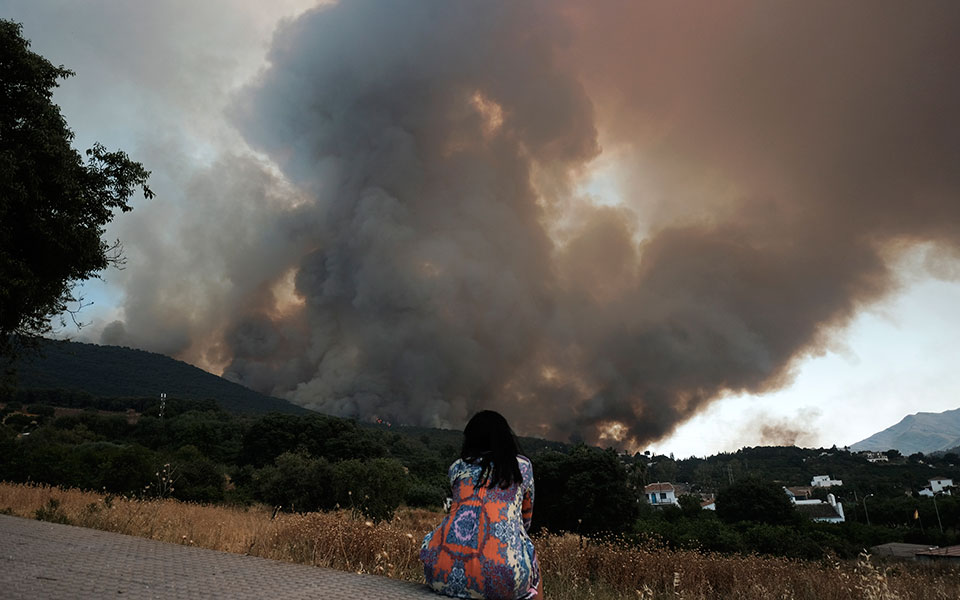 Malaga, Spain. AP Photo/Gregorio Marrero
Malaga, Spain. AP Photo/Gregorio Marrero
More than 1,000 deaths have been attributed to the nearly week-long heatwave in Portugal and Spain so far. Temperatures in Spain reached 45.7 degrees Celsius.
Spain's meteorological service issued high-temperature warnings on Sunday, estimating that the heat wave would end on Monday, but temperatures would remain "unusually high".
Fires were also raging on Sunday in other regions, including Castile and Leon in central Spain and Galicia in the north. Firefighters brought a fire under control in the province of Malaga, with residents returning to their homes, which they had evacuated.
In France, wildfires have burned thousands of hectares in the Gironde, in the southwest of the country, and more than 14,000 people have been evacuated from their homes, regional authorities said on Sunday afternoon.
More than 1,200 firefighters were trying to bring the flames under control, with France issuing a "red alert" - the highest level - in several areas, urging residents to "be extremely careful".
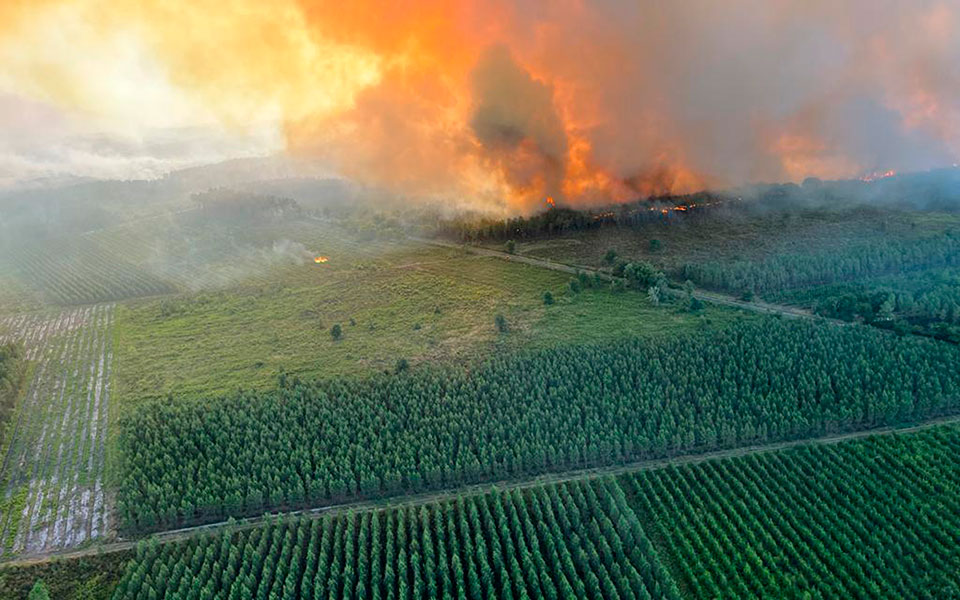 Gironde, France. Photo SDIS 33 via AP
Gironde, France. Photo SDIS 33 via AP
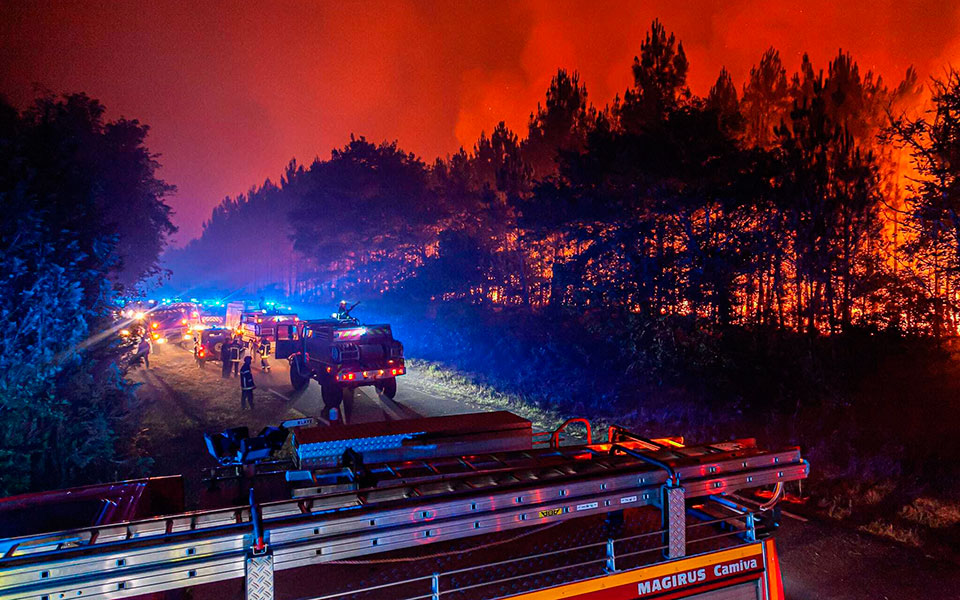 Gironde, France. Photo SDIS 33 via AP
Gironde, France. Photo SDIS 33 via AP
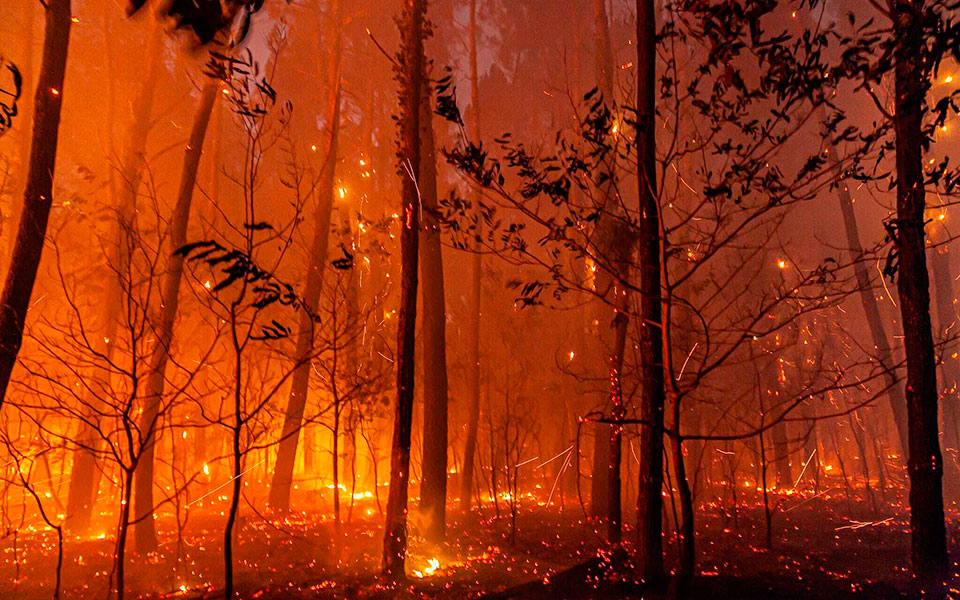 Gironde, France. Photo SDIS 33 via AP
Gironde, France. Photo SDIS 33 via AP
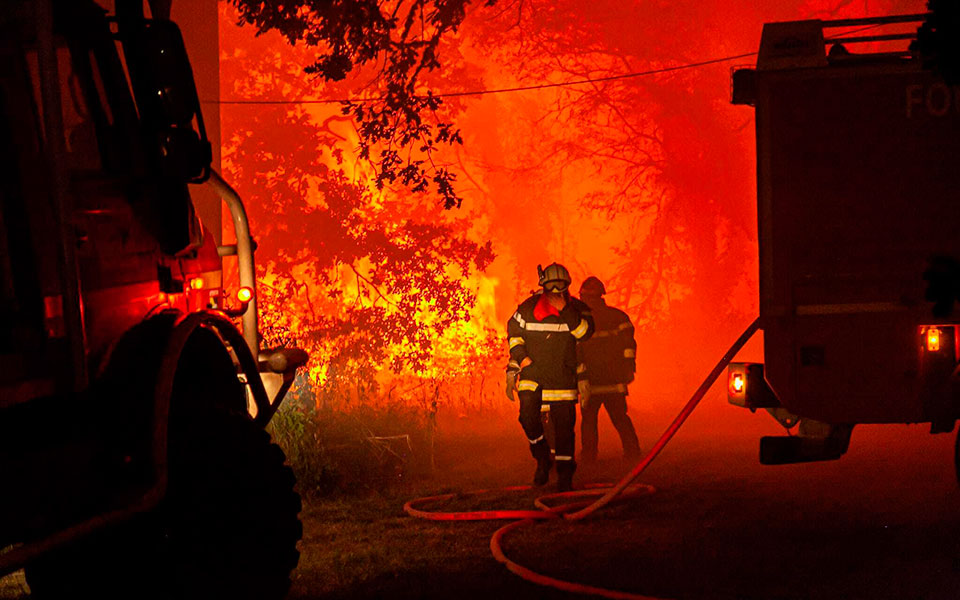 Gironde, France. Photo SDIS 33 via AP
Gironde, France. Photo SDIS 33 via AP
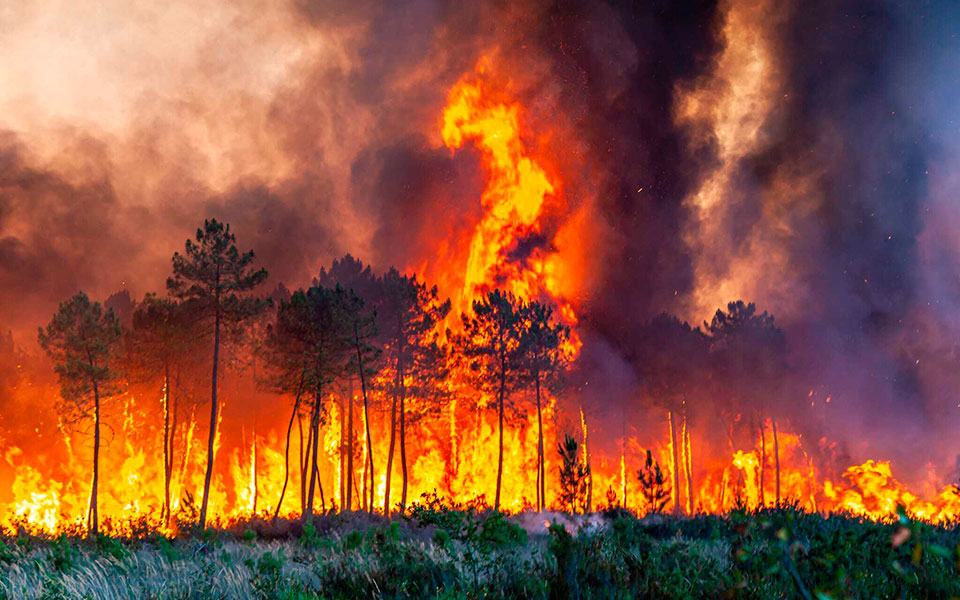 Gironde, France. Photo SDIS 33 via AP
Gironde, France. Photo SDIS 33 via AP
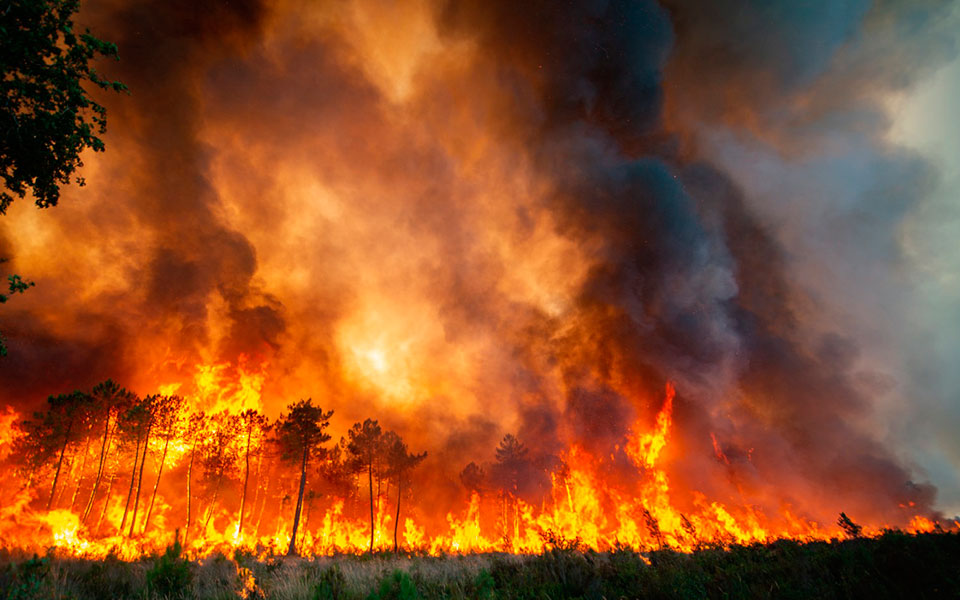 Gironde, France. Photo SDIS 33 via AP
Gironde, France. Photo SDIS 33 via AP
In Italy, where smaller fires have broken out in recent days, forecasters expect temperatures above 40C in several areas this week.
In Britain, it is estimated that the mercury is likely to rise to record levels, above the 38.7 degrees Celsius recorded in Cambridge in 2019, with the Met Office issuing a "red" warning for "extreme heat" in parts of England.
 Broadstairs, Britain. Photo Reuters
Broadstairs, Britain. Photo Reuters
 Broadstairs, Britain. Photo Reuters
Broadstairs, Britain. Photo Reuters
 London. Photo Reuters
London. Photo Reuters
 Broadstairs, Britain. Photo Reuters
Broadstairs, Britain. Photo Reuters
 London. Photo Reuters
London. Photo Reuters
 Margate, UK. Photo Reuters
Margate, UK. Photo Reuters
Drought in Portugal
High temperatures were also recorded in Portugal on Sunday. About 1,000 firefighters tried to control 13 fires in the center and north of the country.
Portugal's health ministry announced on Saturday that over the past seven days, 659 people, most of them elderly, have died due to the heat. On Thursday, temperatures exceeded 40 degrees Celsius in several areas and 47 degrees Celsius at a meteorological station in the center of the country.
By Saturday, 360 heat-related deaths had been recorded in Spain, according to data from the Carlos III Health Institute.
 Madrid. Photo Reuters
Madrid. Photo Reuters
Portugal was facing extreme drought even before the recent heatwave, according to data from the National Meteorological Institute. About 96% of the mainland was already experiencing severe or extreme drought at the end of June.
It is recalled that dozens of fires broke out in Greece over the weekend.
Especially warm air mass in Western Europe
The heat wave in western Europe is caused by the particularly hot air masses prevailing in the region. According to the latest prognostic data of the National Observatory of Athens / meteo.gr, the heat wave will persist on Monday 18/07 and Tuesday 19/07.
Air masses at a height of about 1,500 meters above Western Europe are up to 16-17 degrees Celsius warmer than the seasonal average. Temperature deviations from the average value of such a large magnitude constitute extreme weather behavior, according to meteo.gr. It is noted that the final configuration of the temperature near the ground is influenced by a number of factors, such as e.g. cloudiness, the manifestation of phenomena, the winds, etc.
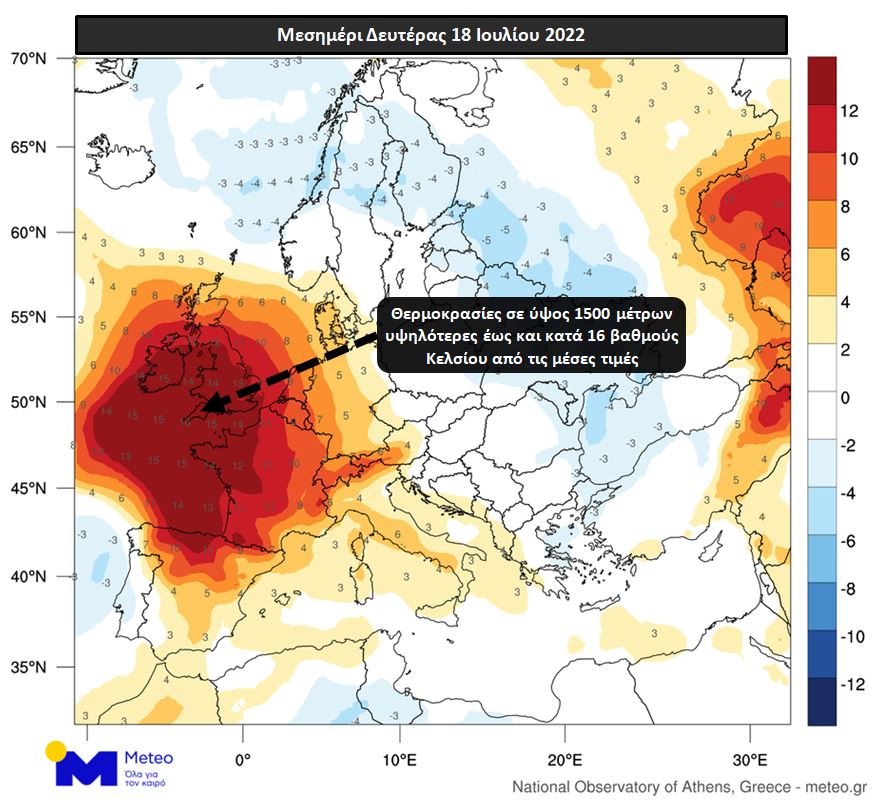 meteo.gr
meteo.gr
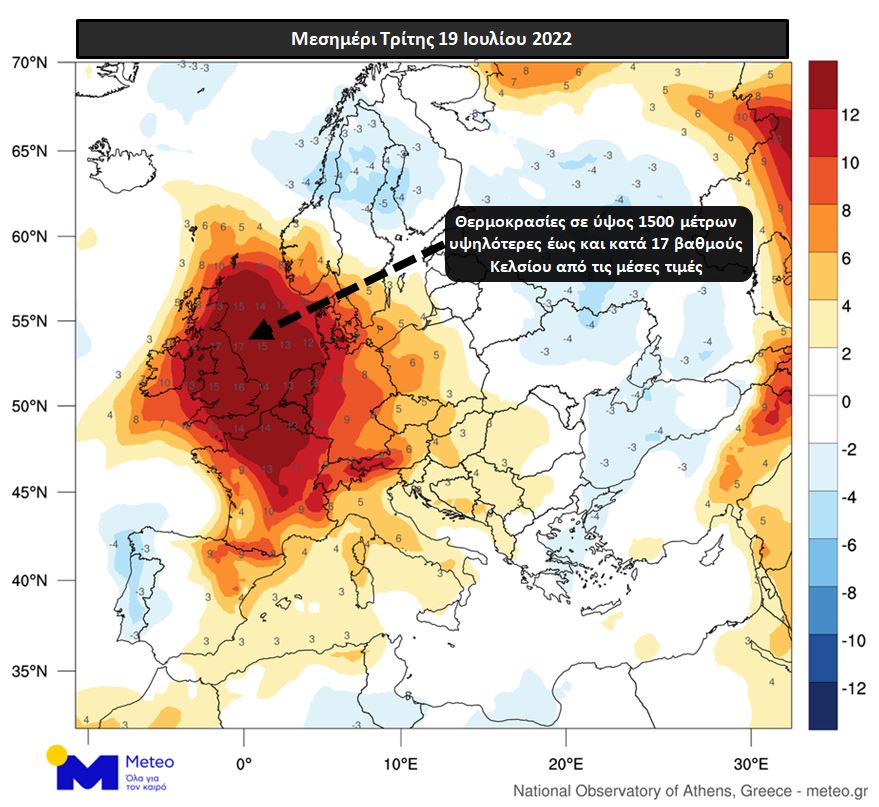 meteo.gr
meteo.gr
With information from REUTERS, METEO.GR































